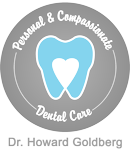Air Abrasion Dentistry
Dentists are constantly on the lookout for minimally invasive treatments and procedures that are more effective than traditional applications and also provide greater benefits to patients. Air abrasion is one such technology that is used in place of a traditional drill. With air abrasion in [city] a compressed stream of aluminum oxide particles are used to remove decayed portions of the teeth, as well as prepare the tooth for restorations, such as tooth-colored fillings, crowns, and veneers. Many patients prefer air abrasion because it is quieter than a drill and also produces no heat or vibration. Dentists prefer the technology because it keeps the work site dry, reduces the risk of damage to the tooth, and it is quick and easy to administer.

Did you know…that air abrasion technology has first used for dental purposes in the 1940’s? Today, the technology is standard in many practices, specifically among dentists who are interested in preserving as much of the original teeth as possible. Air abrasion leaves more of the natural tooth intact, and it also requires less anesthesia for patient pain management due to the cooling effect of high pressure air. Some dentists even use air abrasion for cosmetic purposes, such as to remove surface stains and discoloration. |
Frequently Asked Questions
Am I a candidate for air abrasion dentistry?
Air abrasion dentistry is especially beneficial for patients who experience anxiety or fear of the dental drill. You may be a candidate if you will be getting restorations or if you have small cavities near the surface of the tooth. Air abrasion may not be right for you if you have decay that reaches near or into the tooth’s pulp.
What should I expect if I get air abrasion dental services in [city]?
If you undergo a dental treatment in [city] involving air abrasion dentistry, you can expect a very different experience than those you may have had with traditional drills. There will be no uncomfortable smell, and your teeth will not become hot during the procedure. Unless you are anesthetized, you may feel a cool stream of air, which is working to blast away decayed portions of your tooth without affecting the healthy surrounding portions of the tooth.
Are there any post-treatment care instructions that I should follow?
There are no special post-treatment care instructions that you will need to follow in relation to abrasion dentistry vs. traditional drills, but you may have some guidelines related to the type of treatment you have.












